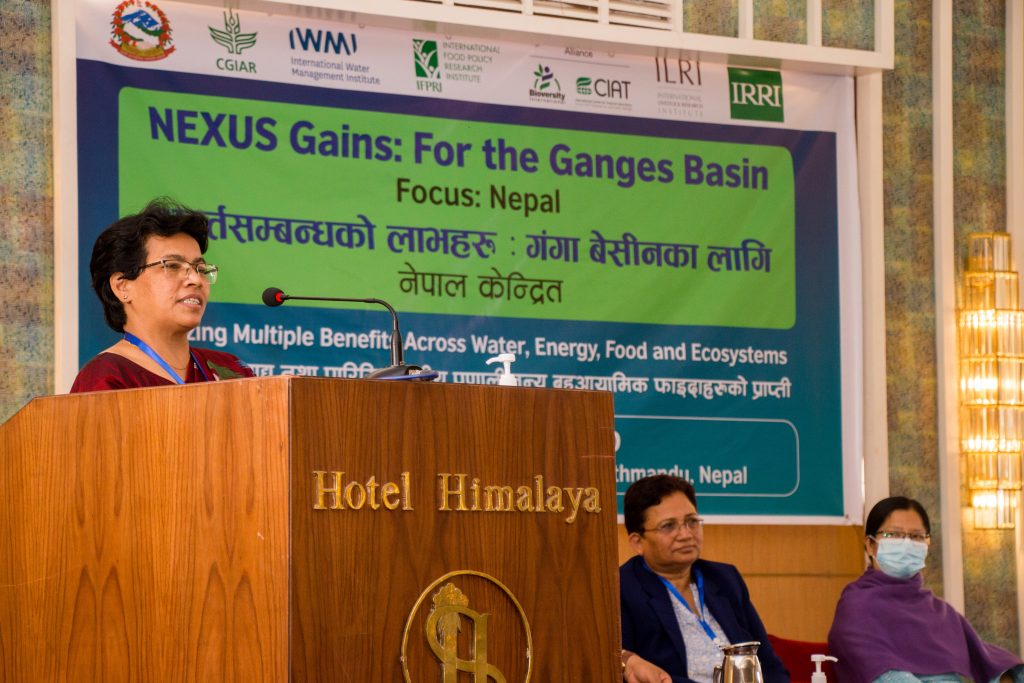Youth who want to contribute to the common good
- Nature Khabar

I have been involved in the environment sector mainly through my work at Clean up Nepal since 2012. Over the last five years, I have witnessed growing engagement and awareness of youth in Nepal on a wide range of environmental issues ranging from waste management, water, sanitation and hygiene, urban forestry, resource recovery, sustainable consumption and civic responsibility, climate change adaptation, water and air pollution, sustainable transport, car-free cities, rain water harvesting and grey water recycling, improved design and insulation of homes, plastic bag bans, energy efficiency and so much more. This could be because of a greater sense of responsibility that has now fallen on today's youth and the growing number of youth who want to contribute to the common good. With government institutions not able to adequately deal with the pressing environmental problems of our rapidly urbanizing cities, youth --often engaged and trained by civil society-- are now filling a void to advocate for improved policy and infrastructure development, to work with communities and educational institutions to raise awareness, and to spread a message among other youth and Nepali citizens about the role each individual can play in addressing some of our most pressing environmental issues.
Outcomes of youth involvement
In still developing countries like Nepal where there is so much work to be done in the environment sector, the role of youth in advocating for and championing some of the issues and in working on creating real, tangible solutions is so very important. Due to advances in technology and improved pedagogy at schools, the Nepali youth of today are a lot more skilled and knowledgeable than ever before. Youth today are seen volunteering their time and energy to causes they believe in, and this has resulted in positive outcomes such as the amplification of results obtained by civil society, improved awareness at communities they work in, increased enthusiasm and creation of hope for many communities where previous efforts have not materialized, and the building of networks of individuals that are working towards a common vision.
Problems and challenges on youth engagement in the environment sector
We need to engage youth in environmental issues not only as volunteers but also as paid professionals. One of the challenges faced by civil society organizations-- Clean up Nepal being one of them-- is the lack of job-ready skilled youth that are able to understand the complexity of problems we face today and are able to find ways to address them. This will require universities in Nepal to start looking at their curriculum to ensure that what they teach is practical in nature and relevant to issues faced in Nepal. Theory should provide a foundation for understanding key phenomenon, but theory alone is not sufficient if it does not help our students connect this with what they see in the world.
Other challenges include youth today being involved in too many things and at too many organizations. Perhaps this is a process where youth try to understand what they are most passionate about but it is not uncommon to see youth being involved in 5 or more organizations, and all at the same time.Mentoring such youth volunteers always poses problems because this requires a significant time investment on the part of the organization that they are working with. I would advise youth to try to workout what they are passionate about and then to put in the hard work of understanding the root causes of the challenges faced. This will ensure their input is much more meaningful and contextualized, and their experience richer and more fulfilling.
Role of the Nepal government to mobilize youth in the green sector
Having worked in both Nepal and Australia, one of the stark differences I notice is in the minimal support provided by the Nepalese government to volunteers, particularly youth volunteers who make a significant contribution to Nepal's development. Most youth are engaged in environment issues on a purely voluntary basis, and whilst this is all well and good, they often lack the resources to carry out projects. In Nepal, we ask our youth to give their time and also fund projects, which really needs to change. A small grants mechanism should be put in place by the Nepal government to competitively provide funding to youth groups that have a track record for creating positive change in their communities. This can provide our youth volunteers encouragement to continue to build on their passion and make a meaningful difference to their communities.
Green Job Opportunities
Opportunities in the 'green sector' in Nepal are still limited compared to other parts of the world. This is because environmental issues are often least considered in Nepal, and unknowingly (or knowingly), we are relegating our responsibilities to future generations. An acute example of this is our willingness and acceptance at large to continue to pollute rivers throughout Nepal due to the poor waste management and sanitation systems, and lack of civic awareness for decades before government takes tangible, strategic and systematic action. Some initiatives are evident in the private sector, and government needs to provide an enabling environment for these initiatives to be scaled up. Otherwise, what we are seeing is that these initiatives are taken up only by the margin and not by the majority.
Dr. Neelam Pradhananga is the Founder/Global Coordinator of Clean up Nepal





Feedback